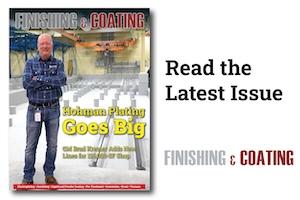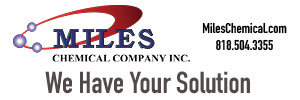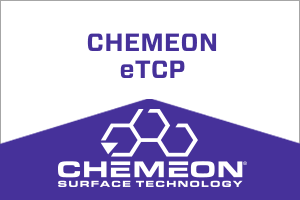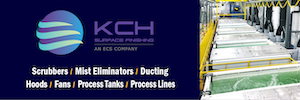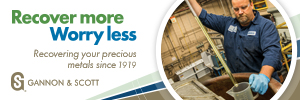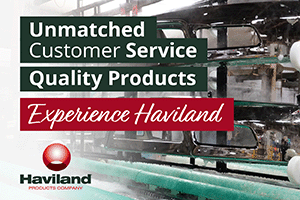Anne Deacon Juhl, Ph. D., owns AluConsult, a Danish company that consults with leading manufacturers and shops on issues related to aluminum and anodizing.
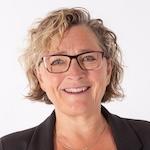 Dr. JuhlDr. Juhl holds a Ph.D. in pulse anodizing of extruded and cast aluminum alloys from the Technical University of Denmark, Material and Surface Technology Department, and is an M.Sc. chemical engineer focusing on the corrosion resistance of light metals.
Dr. JuhlDr. Juhl holds a Ph.D. in pulse anodizing of extruded and cast aluminum alloys from the Technical University of Denmark, Material and Surface Technology Department, and is an M.Sc. chemical engineer focusing on the corrosion resistance of light metals.
She is also a member of the International Hard Anodizing Association and the Aluminum Anodizers Council.
For her clients, Dr. Juhl helps those who need to keep the anodizing lines rolling and those who use anodized aluminum parts to design and create wonderful products.
“My experience includes a PhD in anodizing, working as a quality manager in an anodizing company and a production supervisor in the aerospace industry, as well as consultancy and training for many companies as a private consultant,” she says.
Dr. Juhl also conducts various seminars regarding the anodizing treatment of aluminum and has authored more than a dozen papers regarding various kinds of anodizing processes.
In 2020, AluConsult launched AnodizingSchool as a new learning community for anodizes and professionals working with anodizes.
Tim Pennington: You are one of the most prolific researchers and writers in the anodizing industry. Tell us How you first got involved in the anodizing and finishing industry.
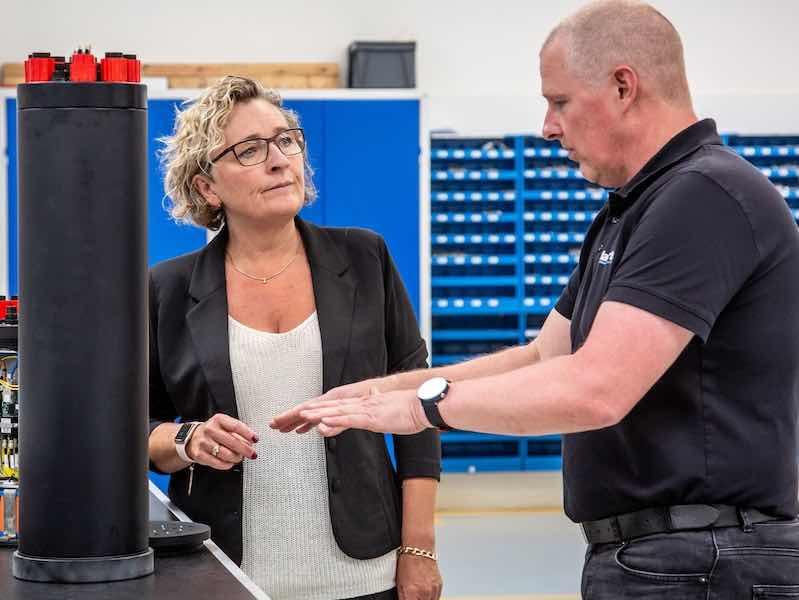 Dr. Juhl helps those who need to keep the anodizing lines rolling.Dr. Anne Deacon Juhl: It started with a master's at the Technical University of Denmark, where I tested aluminum and corrosion. Then, I was asked to stay at the university to get a Ph.D. At that time, pulse anodizing was in its beginning; a couple of rectifier companies were talking about it, and some Japanese companies were using it. I was asked to test different parameters when doing pulse anodizing. I thought a Ph.D. sounded great, so I did the Ph.D., and after that, I swallowed all this knowledge, and now I'm ready to conquer the anodizing world. I started my own anodizing company, AluConsult, and I've been working there since 1999. A couple of times, I was employed because some of my customers had problems with confidential things and so on, but most of the time, I was in my own consulting company.
Dr. Juhl helps those who need to keep the anodizing lines rolling.Dr. Anne Deacon Juhl: It started with a master's at the Technical University of Denmark, where I tested aluminum and corrosion. Then, I was asked to stay at the university to get a Ph.D. At that time, pulse anodizing was in its beginning; a couple of rectifier companies were talking about it, and some Japanese companies were using it. I was asked to test different parameters when doing pulse anodizing. I thought a Ph.D. sounded great, so I did the Ph.D., and after that, I swallowed all this knowledge, and now I'm ready to conquer the anodizing world. I started my own anodizing company, AluConsult, and I've been working there since 1999. A couple of times, I was employed because some of my customers had problems with confidential things and so on, but most of the time, I was in my own consulting company.
TP: Let me ask you about your university training. Was that what you wanted to do? What interests you about metallurgy, finishing, and those types of things?
ADJ: I'm a chemist and a chemical engineer. I didn't want to be in organic chemistry; you need to do many things, like biochemistry, and calculate all the dots, all the micro bacteria dying, and it seems like inorganic chemistry is great. Then, I had a mentor who was my supervisor, and he had a project called “Corrosion Measurement by Titration.” He wanted me to help, so I got into the materials and metals combined with the chemistry simultaneously.
TP: I read your quote about people thinking that anodizing is a mature process. Manufacturers find it continually challenging, and you're almost continually chasing answers.
ADJ: I think that's because many people think about anodizing as a mature industry, but it's not. Everything is changing: the equipment and how it's so much easier to monitor things. What we couldn't do 10 years ago, we can do now easily. So, in that way, we can get closer to what I call “the real stuff” and what's happening in the analyzing process. We also need to think about the environment; that makes the anodizing process from being something you can not only protect your aluminum with but also a smart thing to do if you want to make a green solution for your aluminum product.
"I'm trying to help the industry to also improve the knowledge in the company by being a second pair of eyes."
TP: With your consulting firm, AluConsult, you call it a “second set of eyes” for an operation. How have you been able to help your clients?
ADJ: We talked earlier about people not staying in a company as long as they have done before, and the young people are more flexible; they want an exciting new job five years later. A company also needs to be better at documenting. But I think also that the young people want to have more knowledge. They don't want the tribal knowledge and tweaking around; they want to know “why and how” and what's happening. It's also a way to lift the industry instead of just thinking about huge process things, and people are just going around dipping it, and sometimes it goes right and wrong. I'm trying to help the industry to also improve the knowledge in the company by being a second pair of eyes, but also, when you have been working at a place for a long time, you don't see the things in front of your nose because you have been doing this for so long. And sometimes it's also, as I see it, difficult because these people like their work, and they are honored and proud of what they are doing. And it's not that easy to show other people what you have been doing for the last 35 years. So, there is a gap right now where I can see the companies I'm working with; they asked me to come in because the older guys are retiring.
TP: You also do training, a newer service for you. I know you started about four or five years ago with training. Talk about how that's expanded and what you've been involved in.
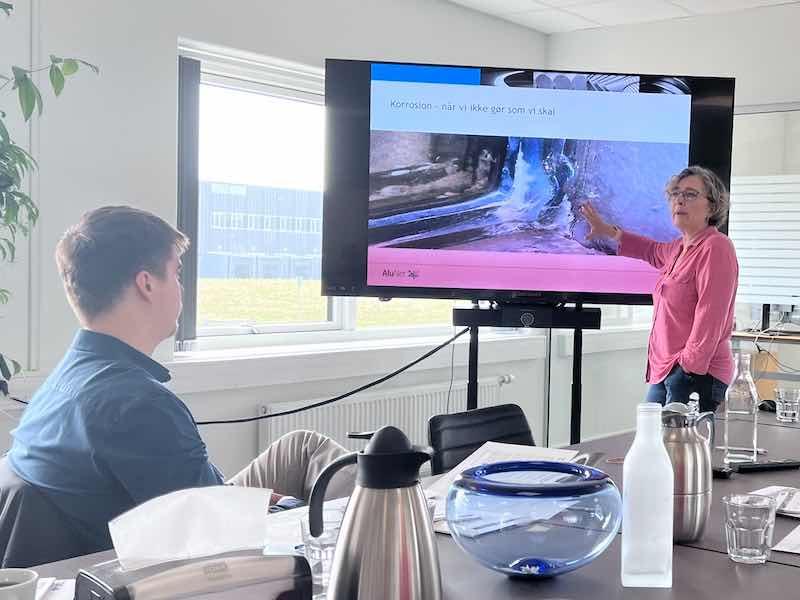 ADJ: It all started because of COVID. I couldn't go anywhere because, as a consultant, you couldn't come into the companies anymore and couldn't travel. So I was stuck here in my house. So, to not get crazy and start talking with the dears and the rabbits and birds outside, I thought, you know what, I have been thinking about this for a long time. I am thinking about writing a book, but many books are out there, so why not try to do it online during the COVID-19 year? We all were getting more comfortable doing online things, and things were just melding together. I have always been thinking about doing something educational training.
ADJ: It all started because of COVID. I couldn't go anywhere because, as a consultant, you couldn't come into the companies anymore and couldn't travel. So I was stuck here in my house. So, to not get crazy and start talking with the dears and the rabbits and birds outside, I thought, you know what, I have been thinking about this for a long time. I am thinking about writing a book, but many books are out there, so why not try to do it online during the COVID-19 year? We all were getting more comfortable doing online things, and things were just melding together. I have always been thinking about doing something educational training.
TP: So you were thinking about this before COVID?
ADJ: Not as an online course, but years ago, when I was living in San Diego, I had 10 to 15 anodizing workshops where I came into a hotel in the area, and then the companies could come in, and we had a two-day workshop. So, it was that workshop I put into an e-learning course. It explains much about the theory, but it's also about hands-on training; I'm also asking questions and giving you some assignments when talking. It also made my life as a consultant much easier and cheaper, so my customers don't have to fly me into Chicago. For example, we can start having meetings in the beginning. I sometimes do two-step training and basic anodizing training online just to get the terminology so we can talk in the same language. Then, I came in and stayed there for a couple of days, during which we reviewed their problems. I think it worked out well with COVID.
"The biggest problem is that in the beginning, when anodizing started, it was not shown that anodizing was the most important part of aluminum production."
TP: As I said, you're a prolific writer and researcher. Some people in the industry are hesitant to share some of their data and research, but you have been very good about sharing. What drives you to do that?
ADJ: Going back to what I said when I had finished my Ph.D., I had this feeling of conquering the anodizing world. And I think I have the same feeling; I don't have to conquer it, but more helping others using aluminum. I just see a possibility of helping the world become a better place to live. I would like to share that as more people start using anodized aluminum, they need help. It's also getting bigger for me, but it's also getting bigger for the anodizing and aluminum industries. Overall, I think it's the right way to think that sharing is the best.
TP: What do you think they get most wrong about anodizing? Do people really understand what is actually happening? Do you think you might have to educate them a little more?
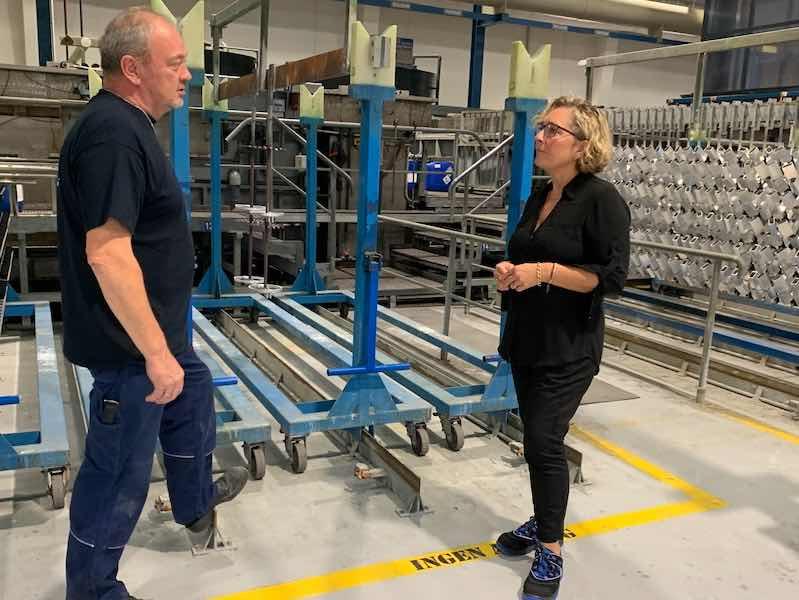 Dr. Juhl holds a Ph.D. in pulse anodizing of extruded and cast aluminum alloys from the Technical University of Denmark.ADJ: I think that more education is needed. I know for sure that a lot of people know a lot about anodizing. Still, what I see when you ask me for the biggest problem is that in the beginning, when anodizing started, it was not shown that anodizing was the most important part of aluminum production. I feel that is why things sometimes go wrong; maybe they are way too low on price or too busy, or maybe they have to deliver it before they even get the parts in, as anodizing is almost always the last step. I think 70% to 75% percent of my customers are actually what I call the end users, the people who are using anodized aluminum. I'm trying to tell them that they should pay more because this is important, and if the companies had more money, they would be paid better; there would be more money for more people, more education, better equipment, and more time to do things. I feel that is the main problem. Unfortunately, things are getting worse right now.
Dr. Juhl holds a Ph.D. in pulse anodizing of extruded and cast aluminum alloys from the Technical University of Denmark.ADJ: I think that more education is needed. I know for sure that a lot of people know a lot about anodizing. Still, what I see when you ask me for the biggest problem is that in the beginning, when anodizing started, it was not shown that anodizing was the most important part of aluminum production. I feel that is why things sometimes go wrong; maybe they are way too low on price or too busy, or maybe they have to deliver it before they even get the parts in, as anodizing is almost always the last step. I think 70% to 75% percent of my customers are actually what I call the end users, the people who are using anodized aluminum. I'm trying to tell them that they should pay more because this is important, and if the companies had more money, they would be paid better; there would be more money for more people, more education, better equipment, and more time to do things. I feel that is the main problem. Unfortunately, things are getting worse right now.
"I'm passionate, an anodizing nerd. I could talk forever about anodizing. This is my life and has been my whole life."
TP: Do you see anodizing growing? More and more industries are looking to anodize rather than using steel or other types of metal.
ADJ: I think there is an increase in the use of anodized aluminum. But there are also things out there we still need to handle with aluminum when we do the production. At least we see here in Europe and Scandinavia that we don't want to buy aluminum if it's produced with a lot of energy from coal. And so that is something which we need to take care of here; we may be a mature industry, and sometimes being mature also means leaning back and saying, “Okay, things will just work well,” so instead of continue improving and being out there and talking about things. I'm a member of the Aluminum Anodizers Council and the International Hard Anodizing Association, and we try to do a lot. Still, I think we need to do more to get the end users and the manufacturers to see it. Maybe invite them to our conferences or read your magazine, but they are not doing that because we love to talk about our solutions, chemicals, and processes. We don't want to let them in because they get tired of being at a conference for two and a half days, only hearing about it anodizing as a process. Maybe we should be a little better at trying to get them in.
TP: You have your consulting firm—which is going strong—and your online school. Do you enjoy teaching classes in person or online? It seems like you really look forward to talking to people about the anodizing process.
ADJ: As you can hear, I'm passionate, an anodizing nerd. I could talk forever about anodizing. This is my life and has been my whole life.
TP: I guess when you are giving a class and see that somebody has a breakthrough and becomes aware of something they weren't aware of before, that's got to be a little victory for yourself?
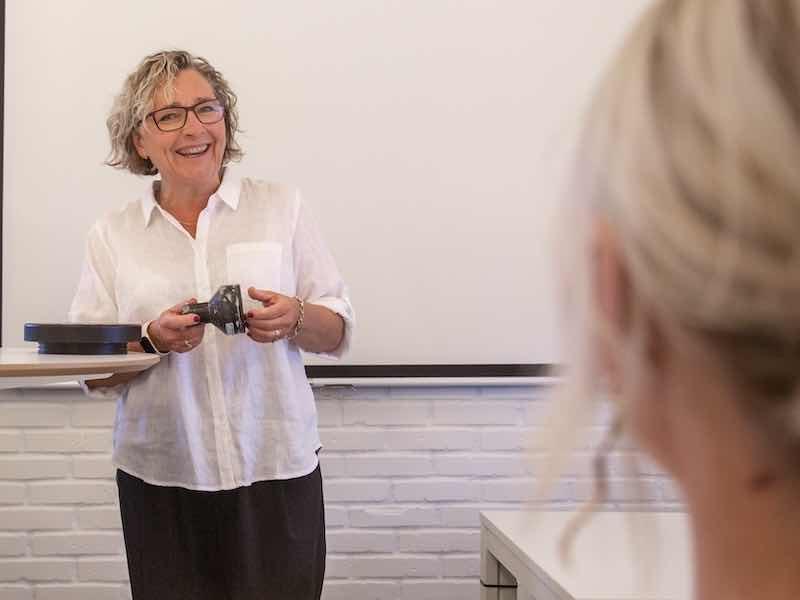 ADJ: As a consultant, you must own those victories because you're not in the company. You're in and out, but it's always nice to get an email back from a customer saying you made a huge difference and things like that. It is coming in and having the time to talk about my passion. People get passionate, and you can also have them involved.
ADJ: As a consultant, you must own those victories because you're not in the company. You're in and out, but it's always nice to get an email back from a customer saying you made a huge difference and things like that. It is coming in and having the time to talk about my passion. People get passionate, and you can also have them involved.
TP: You mentioned huge differences, but even small things make a difference, right?
ADJ: I normally call it the butterfly effect; a little flap of the butterfly's wing on one side of the globe can make a hurricane or storm on the other. And that is right, and that's why it's so great to come in and say, “Have you thought about that?” And then they say, “No, we have been doing it this way forever.” So that's nice.
Visit https://aluconsult.com






